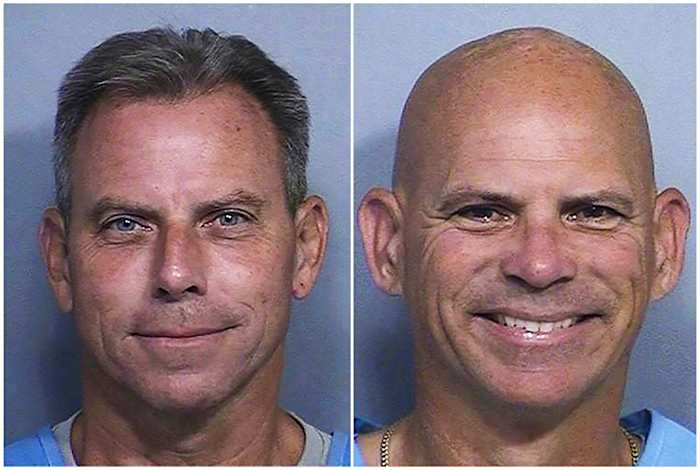URGENT UPDATE: Erik Menendez has just been denied parole by a panel of California commissioners during a hearing held on July 20, 2023. In a rare and emotional statement, Menendez provided his most detailed account in years about his troubled upbringing and the choices that led to the brutal killings of his parents in their Beverly Hills home in 1989.
The Menendez brothers, Erik and Lyle, were sentenced to life in prison without parole in 1996 for fatally shooting their parents, Jose and Kitty Menendez. The parole hearing, which took place via videoconference, was observed by a selected reporter from the state corrections department, who later shared key insights with the public.
Menendez, now in his 50s, expressed the profound impact of his childhood on his actions. He stated, “I was not raised with a moral foundation. I was raised to lie, to cheat, to steal.” He described how his father encouraged him to cheat in tennis, highlighting a lack of moral boundaries instilled in him as a teenager.
The emotional weight of his father’s abuse surfaced as he spoke candidly about his relationship with him. “I fantasized about my father not being alive,” Menendez revealed, explaining the complexities of his feelings. When asked why he did not leave the family home at the age of 18, he responded, “In my mind, leaving meant death. There was no consideration. I was totally convinced there was no place I could go.”
Menendez also addressed the shocking question of why he killed his mother, Kitty. He stated that he learned of her complicity in the abuse, saying, “It was the most devastating moment in my entire life. It changed everything for me.” He expressed remorse about his mother’s death: “I wish to God I did not do that.”
The panel did not shy away from discussing Menendez’s rule violations in prison, including incidents involving alcohol, gang affiliations, and possession of a cellphone. He explained his reasoning for using a cellphone, claiming, “What I got in terms of the phone and my connection with the outside world was far greater than the consequences of me getting caught with the phone.”
Reflecting on his substance abuse, he admitted, “If I could numb my sadness with alcohol, I was going to do it.” Menendez shared that he turned to alcohol to cope with the pain, stating he would have sought other drugs if necessary.
In a significant shift, Menendez described his decision to get sober in 2013 and embrace faith. “From 2013 on I was living for a different purpose. My purpose in life was to be a good person,” he said. He added, “I believe I’m going to face a different parole board when I die.”
The emotional revelations during the hearing have sparked widespread discussion, with many questioning the implications of his story on the understanding of trauma and abuse. As details emerge and reactions pour in, this story remains developing.
As this situation unfolds, observers are left wondering what the future holds for Erik Menendez and whether his reflections will resonate with the public and impact future parole considerations. Stay tuned for updates on this poignant and gripping case.
